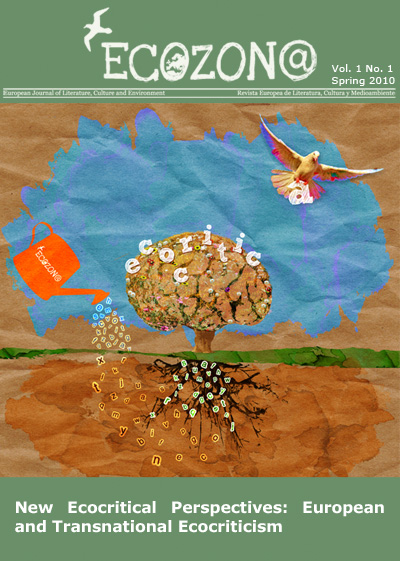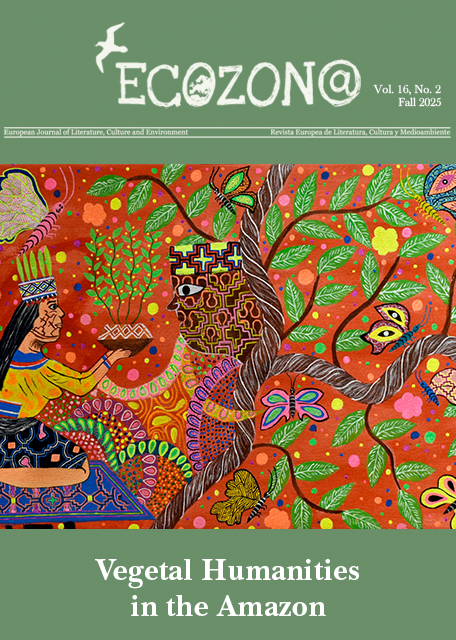Notes toward an Ecological Conception of Bakhtin’s ‘Chronotope’
DOI:
https://doi.org/10.37536/ECOZONA.2010.1.1.327Schlagworte:
Bakhtin, chronotope, road, nature poetry, American novel, Robert Frost, Jack Kerouac, poetic interconnectionAbstract
Key words: Bakhtin, chronotope, road, nature poetry, American novel, Robert Frost, Jack Kerouac, poetic interconnectionMikhail Bakhtin’s concept of the ‘chronotope’ as a set of space-time relations characterising a particular genre, motif or period deserves the special attention of ecocritics. Bakhtin believed that literary texts help to sustain the vitality of their discursive, social and even natural environment: chronotopic motifs reflect, negotiate and emphasize the status of the environment in contemporary discourse. The ‘road’ illustrates how rivalling space-time configurations play out in twentieth-century literature. Typically imagined as a means of overcoming space and time in the novel, it has been for poets a site of awareness of the subject’s connections with the environment, and of reflections on their own past and future.
Palabras clave: Bakhtin, cronotopo, carretera, poesía de la naturaleza, novela norteamericana, Robert Frost, Jack Kerouac, interconexión poetica.
El concepto de “cronotopo” de Mikhail Bakhtin como un conjunto de relaciones espacio-tiempo que caracterizan un género, motivo o periodo en concreto, merece especial atención de la ecocrítica. Bakhtin creía que los textos literarios contribuyen a preservar la vitalidad de su ambiente discursivo, social e incluso del natural: los motivos cronotópicos reflejan, negocian y ponen de relieve la situación del medio ambiente en el discurso contemporáneo. La “carretera” ilustra cómo las configuraciones rivales de espacio-tiempo se agotan en la literatura del siglo veinte. Imaginada típicamente como una forma de superar el espacio y el tiempo en la novela, la carretera ha sido para los poetas un lugar de concienciación de las conexiones del sujeto con el entorno, y de reflexiones sobre sus propios pasados y futuros.
Downloads
Downloads
Ausgabe
Rubrik
Lizenz
Authors who publish with this journal agree to the following terms:
a) Authors retain copyright and grant the journal right of first publication with the work simultaneously licensed under a Creative Commons Attribution License that allows others to share the work with an acknowledgement of the work's authorship and initial publication in this journal (CC BY-NC for articles and CC BY-NC-ND for creative work, unless author requests otherwise.
b) Authors are able to enter into separate, additional contractual arrangements for the non-exclusive distribution of the journal's published version of the work (e.g., post it to an institutional repository or publish it in a book), with an acknowledgement of its initial publication in this journal.
c) Authors are permitted and encouraged to post their work online (e.g., in institutional repositories or on their website) prior to and during the submission process, as it can lead to productive exchanges, as well as earlier and greater citation of published work (See The Effect of Open Access).










